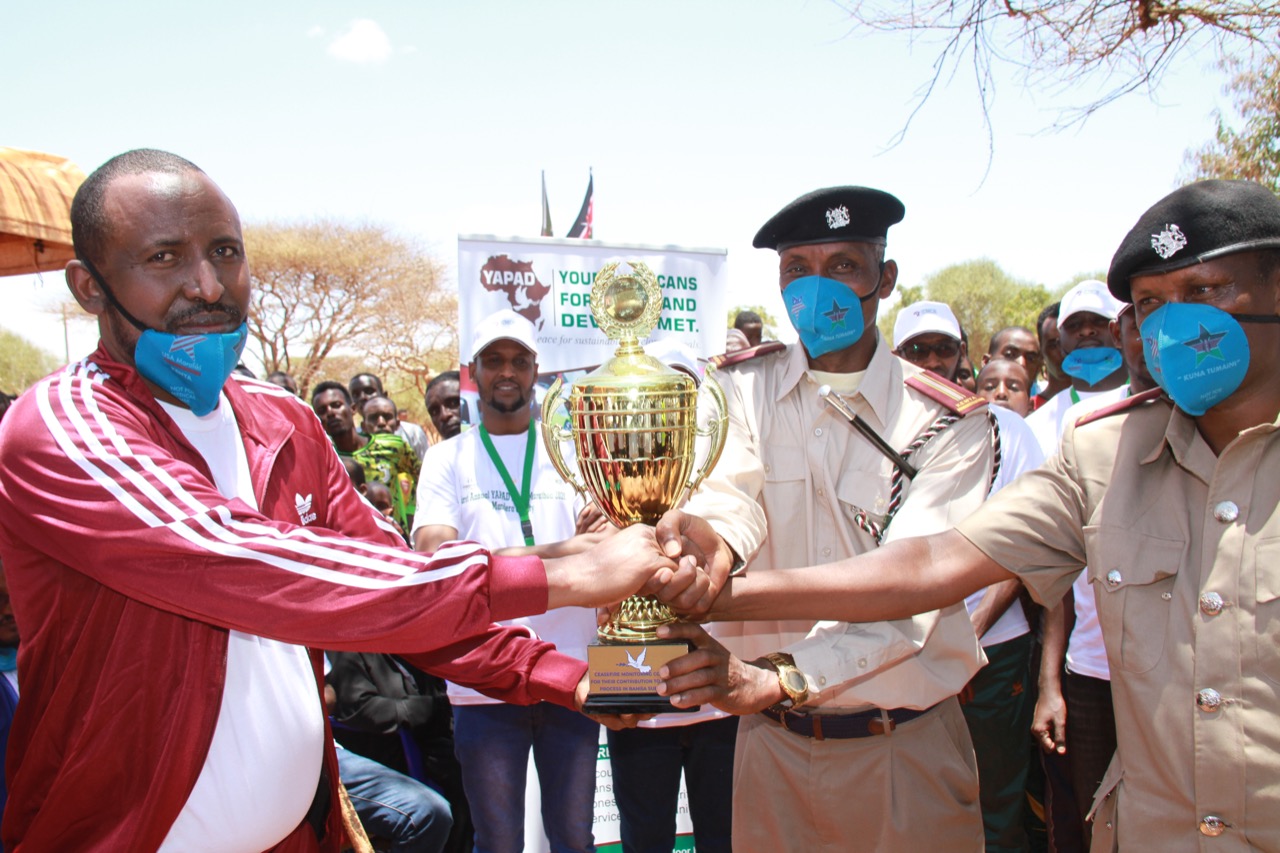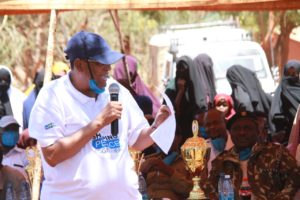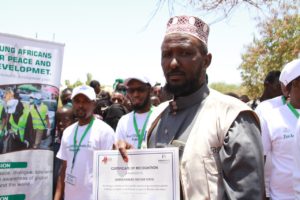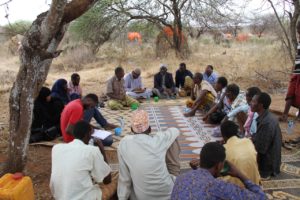Building peace through local spaces in Kenya

Continued violence in some communities in northern Kenya has often torn societies apart, with attacks resulting in the deaths of community members, damage to property, injuries, and displacements. In northern Kenya, Interpeace and the National Cohesion and Integration Commission (NCIC) have facilitated the establishment of local peacebuilding structures through which communities have often shown incredible resilience to rise above their differences and break the cycle of violence.
In Banisa, Mandera County, along the Kenya-Ethiopia border, the dialogue spaces have been used by local communities to collaborate, manage conflicts and to reconcile their differences.
- Credits: Interpeace
“Peace can only be sustained from within these communities. That is why we put emphasis on strengthening the resilience of local peacebuilding spaces, so that they can sustain peace after our project ends,” explained Hassan Ismail, Interpeace Kenya Country Representative.
The dialogue spaces in Banisa were established after 28 people died in a series of attacks and retaliatory attacks that also left thousands of others displaced in October 2019. The conflict was resolved through a series of inter-community dialogues that concluded in a peace agreement.
The community peacebuilding structures consist of ceasefire monitoring committees (CMCs), working groups, peace actors’ forum and village dialogue space committees that link the various conflict corridors. All these structures are coordinated and supported by the local peacebuilding teams. Members of the ceasefire committee work with communities to disarm local militias, ensure that displaced persons return home, initiate and facilitate dialogue, and enhance social cohesion.
- Credits: Interpeace
“The effective implementation of agreements depends on how we work as a team, our clan background notwithstanding, we will always forge forward,” said Mohamed Yussuf, a member of the ceasefire monitoring committee.
Members of the committee have been trained to analyse conflict, facilitate dialogue, share conflict early warning for early response and to resolve conflicts within their communities before they spiral out of control. Since the establishment of the dialogue spaces, violent acts of retaliation have reduced significantly. These local structures have also responded to six major violent incidents involving 14 deaths.
Through the spaces, trust has been restored between some communities in Mandera and the culture of peace and reconciliation nurtured – hence addressing some structural issues that often trigger conflict in the communities without the support of external peace actors.




